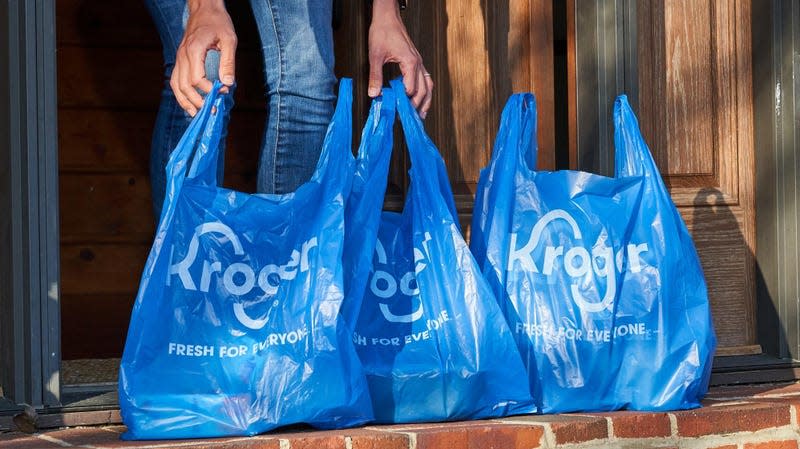Sunday Reads: Cuba policy, peculiar climate projects
Hi Quartz members!
This week, UK regulators stopped a Shell ad campaign featuring the company’s renewable energy efforts because it failed to acknowledge the company’s still-very-heavy dependence on oil and gas. What would an honest ad from a fossil-fuel company look like? Read on. And let us know if you think our suggestions hit the mark (or if you’ve got better ones to share).
Read more
5 things we especially liked on Quartz
🌴 A missed opportunity in Cuba. More than a decade after the Obama administration made its first overtures toward repairing relations with Cuba, the US’s trade embargo remains firmly in place—giving China a chance to enter the scene and cozy up to the Castro regime. Tim Fernholz shows how the US flubbed the full reestablishment of ties with Havana, and opened itself up to new geopolitical risks.
🗣️ Relying on the wisdom of the crowd. Deloitte Consulting CEO Dan Helfrich loves a good debate. But his management team was skeptical when he proposed holding one with all 85,000 of the firm’s employees. Using Deloitte’s company-wide dialog about its return to office policies as a case study, Anna Oakes shares Helfrich’s best practices for structuring healthy discussions that can lead to better decisions for everyone.
🎰 The SEC’s big crypto gamble. Nate DiCamillo sums up the Securities and Exchange Commission’s case against Coinbase, and games out what might happen if it ends up in front of the US Supreme Court. The short answer: either the US crypto industry gets diminished, or the SEC’s regulatory power does.
🌏 Breakup time. Sequoia Capital is hiving off its Chinese and southeast Asian businesses into two new, separate firms. It’s a big story all on its own, but also part of a larger trend of companies reacting to new geopolitical complications, particularly where China is involved. Ananya Bhattacharya puts the split-up in context while also drilling down into Sequoia’s stats in Asia.
🛢️Truth in advertising? With 90% of Shell’s record $40 billion in profit last year coming from oil and gas, Julia Malleck spins up some marketing messages that actually reflect the business. (Sample slogans: “We invest far more in oil and gas than renewables”; “We spend more on paying our shareholders than on renewable energy”; “Our board and shareholders regularly reject stricter climate commitments”.)
5 great stories from elsewhere
💸 Fishy finance. At COP16, rich countries pledged to spend $100 billion per year on climate finance until 2020, a goal which was extended at COP21 to 2025. But the money supposedly being spent on combating climate change is backing some peculiar projects, including a coal plant and a chocolate shop. Reuters sheds light on the murky ways developed nations claim to help the global south reduce emissions.
💎 Psych out. A Qatari billionaire by the name of Sheikh Hamad bin Jassim bin Jaber Al Thani also happens to be the secondary victim of a very bizarre diamond heist. Vice follows a paper trail that shows how a Florida-based psychic under the false name “Giovanni” duped Thani’s assistant into FedEx-ing him $90 million in prized jewels.
🌸 Flower power. The Palace of Versailles, once known for its fragrant gardens, has revived its flowery past. Visitors can now get a whiff of King Louis XIV’s favorite smells when walking through the Châteauneuf Orangery. A story from the LA Times explains why in 17th century France, perfuming the air with jasmine and tuberose was more than just frivolity—it was also about projecting power.
👀 Morality check. The idea that humans are getting worse is a myth—and social scientist Adam Mastroianni has the data to prove it. Translating his own research into layman’s terms on Experimental History, Mastroianni walks us through evidence showing that our “moral panic” has actually remained at consistent levels over time. In fact, people nowadays may actually be getting nicer.
🥁 His own drum. Drummers are taught to stay on beat. But one musician and producer, James Dewitt Yancey, a.k.a. J Dilla, turned that lesson on its head, forever changing hip hop and pop. An audio and visual story from The Pudding shows how use of syncopated rhythms can add a different kind of groove to a piece of music. (For the best experience, check out the interactive article on desktop, and in a quiet spot.)
What to watch for this week

These are some of the events our newsroom will be paying attention to in the week ahead.
Monday: Oracle reports earnings, Salesforce CEO Marc Benioff talks AI at a company event in New York
Tuesday: The US releases its latest inflation data
Thursday: US Open golf starts in Los Angeles. Adobe and Kroger report earnings
Thanks for reading! Here’s to the week ahead, and don’t hesitate to reach out with comments, questions, feedback, gigantic debates, and fragrant tuberose. Sunday Reads was brought to you by Julia Malleck, Heather Landy, Susan Howson, and Morgan Haefner.
More from Quartz
Sign up for Quartz's Newsletter. For the latest news, Facebook, Twitter and Instagram.


